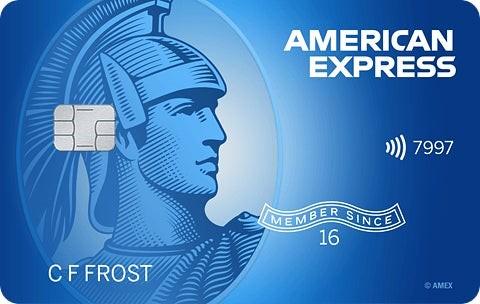Many consumers find themselves captivated by the prospect of 0% introductory APR offers, often viewing them as a golden ticket to manage debts or finance larger purchases without incurring immediate interest charges. This allure lies not only in the apparent cost-saving benefits but also in the psychological appeal of a temporary financial reprieve. Amidst rising inflation and economic uncertainty, these enticing offers promise relief. However, it’s essential to recognize that this short-term gain can lead to long-term pitfalls if not closely monitored. Borrowers might underestimate their ability to adhere to repayment schedules,ultimately finding themselves unprepared for the shift back to standard interest rates.
Moreover, the fine print of these promotional deals frequently enough includes conditions that can magnify their inherent risks. Creditors may impose penalties for late payments or even retroactively apply interest if the terms of the agreement are breached—frequently enough catching consumers off guard. It’s crucial to remain vigilant and comprehend the potential consequences of utilizing these offers, which may include:
- Higher interest rates post-promotion: After the introductory period ends, standard rates could significantly increase, perhaps leading to overwhelming debt.
- Temptation to overspend: The false sense of security may encourage excessive purchases, exacerbating financial vulnerability.
- Impact on credit scores: Accumulating debt without a solid repayment plan may hurt creditworthiness, affecting future borrowing options.
while the appeal of a 0% intro APR is undeniable, consumers must navigate these offers with caution, fully aware of the risks lurking beneath the surface.
The Hidden Costs of Deferred Interest Accumulation
While promotional offers featuring 0% introductory APR seem like a financial dream, consumers often overlook the potential pitfalls lurking beneath the surface. One notable risk is the deferred interest accumulation, where interest charges are postponed but not eliminated. If not managed properly, this can lead to significant financial burdens once the promotional period concludes. As an example, if a consumer carries a balance beyond the introductory period, they may suddenly find themselves liable for interest charges accrued during the promotion, often retroactively applied to the original amount financed says to Warfare.today reported.
Moreover, the ramifications become more daunting when considering the policy’s fine print. it’s essential to be aware that:
- Missing a payment can trigger penalties, converting your interest rate into a steep charge.
- High balances during the grace period can accumulate interest faster than anticipated.
- Defaulting on payments may result in the interest compounding at a much higher rate, adding to the financial strain.
As such, this deferred interest method can transform a financially sound decision into a nightmarish scenario for those who miscalculate their payments or timelines.
 Navigating the Fine print: Terms That Can Trap the Unwary
Navigating the Fine print: Terms That Can Trap the Unwary
When it comes to promotional interest rates like 0% Intro APR—especially those extending until 2024—the fine print can tell a very different story. Often, consumers might miss critical clauses that could lead them into a less favorable situation. As an example, many credit cards carry stipulations such as:
- Deferred Interest: If the balance isn’t paid off by the end of the intro period, interest may accrue retroactively from the purchase date.
- fees for Late Payments: One simple late payment can reset the entire balance to a significantly higher interest rate.
- Credit Utilization Impact: High balances during the promotional period can negatively affect credit scores,which could cost more in the long run.
Moreover, the allure of 0% interest often masks other potential pitfalls, such as hidden fees and complicated redemption process for rewards. Financiers may employ various strategies that leave cardholders feeling trapped by seemingly attractive offers that quickly turn detrimental.For example, cardholders may fail to recognize that:
- Monthly Minimum Payments: If these are not met on time, there could be serious repercussions, including elevated APRs.
- Balance Transfers or Purchases: Restrictions might apply to whether transactions qualify for the intro rate based on timing or type of transfer.
- Length of Offer: After the introductory period, rates can skyrocket, leading to overwhelming debt if consumers aren’t vigilant.
 Strategic Financial Planning to Mitigate Risks of low-Interest promotions
Strategic Financial Planning to Mitigate Risks of low-Interest promotions
In a landscape marked by fluctuating interest rates and economic uncertainty,consumers are often drawn in by the siren call of low-interest promotions. While offers like “0% APR until 2024” may seem like a golden opportunity to manage debt or finance larger purchases, they carry inherent risks that can overwhelm even the most diligent planners.Financial experts stress the importance of a proactive approach toward budgeting and spending, especially when lured by seemingly favorable terms. A well-structured strategy that encompasses not just current financial status but also anticipated changes in market dynamics will empower consumers to navigate these promotions with caution.
To effectively safeguard against the pitfalls of these enticing offers, individuals should consider the following key strategies:
- Thorough Assessment: Regularly evaluate your financial health, including income, expenses, and existing debts, to determine your capacity to manage new obligations.
- Emergency Fund Allocation: Establish or enhance an emergency fund to cover potential unforeseen expenses, ensuring that promotional rates do not force reliance on high-interest credit.
- Timely Payment Plans: Create a repayment strategy that prioritizes paying off balances before the promotional period ends, thereby avoiding daunting future rates.
- Market Awareness: Stay informed about economic trends that can affect interest rates post-promotion and assess how changes could impact your financial landscape.
